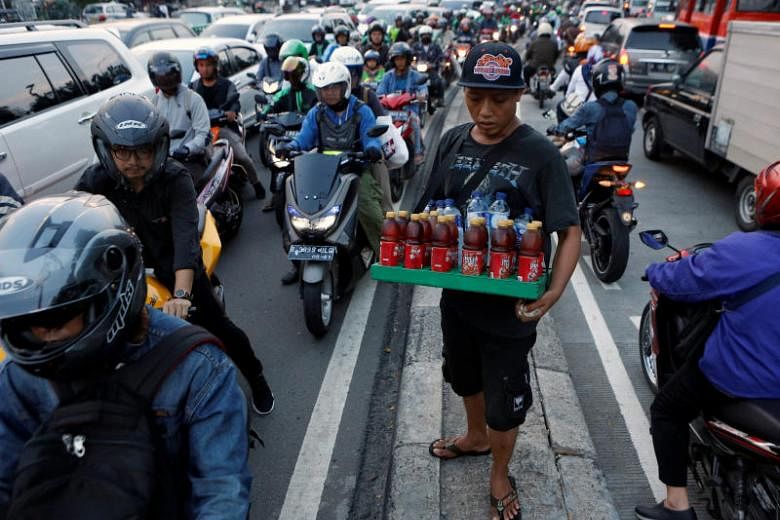Reports of an ongoing study by the government to relocate Indonesia's capital from Jakarta have reinvigorated a decades-old debate over where the next administrative centre of the country should be.
But while the National Development Planning Board (Bappenas), the agency tasked with conducting the feasibility study, believes a move could be possible in five years, others are not as hopeful and called for more effort to resolve the urban issues affecting Jakarta instead.
These include the problem of overcrowding in the city of 10 million, and the regular traffic congestion on Jakarta's main thoroughfares and highways to the suburbs.
President Joko Widodo, however, seems serious about making the move and had hinted earlier this year during a visit to Palangkaraya that the capital of Central Kalimantan province could be the new political and administrative hub.
Bappenas chief Bambang Brodjonegoro last Wednesday confirmed that the feasibility study, set to be completed at the end of the year, does not just cover Palangkaraya, but also other areas in East and South Kalimantan.
"The President has instructed me to study it further and he wants the selected city to represent an ideal capital for Indonesia," he said, as he sought to play down rumours that a decision has already been made.
Mr Joko, better known among Indonesians as Jokowi, is not the first president to have floated the idea of moving the capital to Palangkaraya.
Founding president Sukarno, who had built the city in 1957 on Indonesia's side of Borneo island, had planned to base the central government there in the early years of independence but it never happened.
Some lawmakers have come out in support of the latest plan, saying Indonesia could emulate Malaysia, which moved its administrative centre to Putrajaya or the United States, which separates its political capital in Washington, DC, from its business centre in New York.
Golkar politician Zainudin Amali told Tempo news last week that relocating the capital will not only address Jakarta's overpopulation issues, but also ignite plans to develop other cities outside of Java.
"If the capital is not moved, people will continue to flock to Jakarta," he said.
Senior lawmaker Oesman Sapta Odang, agreed and said he would especially welcome a move to Kalimantan, where he was born.
"Palangkaraya is suitable because of the availability of space," he said last Friday, adding that such a plan would accelerate infrastructure development there.
-
Pros and cons of moving capital
-
PROS
• Reduce overcrowding and traffic congestion in Jakarta
• Accelerate infrastructure developments in the new capital
• Generate new areas of growth in both Jakarta and the city chosen to be the next capital
• Create more jobs and business opportunities for Indonesians and the region -
CONS
• Lack of infrastructure may hamper the establishment of the new capital
• The government will have to bear most of the costs for the relocation
• Resistance from political or business groups historically entrenched in Jakarta or Java
Palangkaraya is four times the size of Jakarta, with a population of just over 236,000. But infrastructure development there, as well as most of Kalimantan, has been slow.
Environment planning expert Rudy Parluhutan Tambunan said last week that while Palangkaraya appears to be the President's choice for now, there must be other considerations especially when the city is virtually landlocked.
"A key requirement for any central government is accessibility by sea, land and air, but because (Indonesia) is an archipelagic state, access from the sea is more important," he told The Straits Times.
Dr Rudy and other observers also believe that Jakarta, despite its urban issues, can still function as Indonesia's capital.
They said this is because former Jakarta governor Basuki Tjahaja Purnama, better known by his Chinese nickname Ahok, has managed to resolve many of the city's longstanding issues.
These include reviving urban renewal projects such as the MRT and new viaducts to alleviate traffic jams; providing low-cost housing for the poor, and clearing up rivers to prevent mass flooding.
"In the past (the problems) were just 'business as usual', but over the last three years, Jakarta has seen serious improvements under Ahok," said Dr Rudy.


